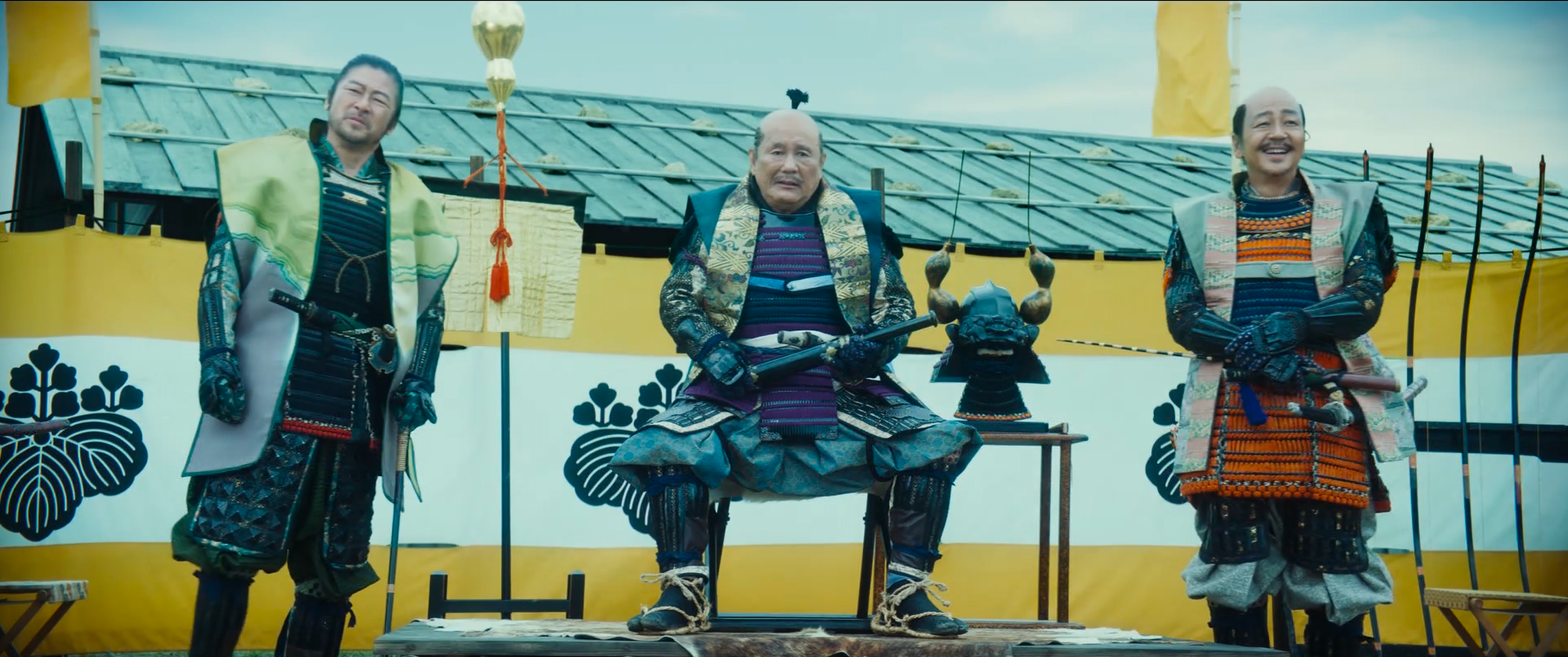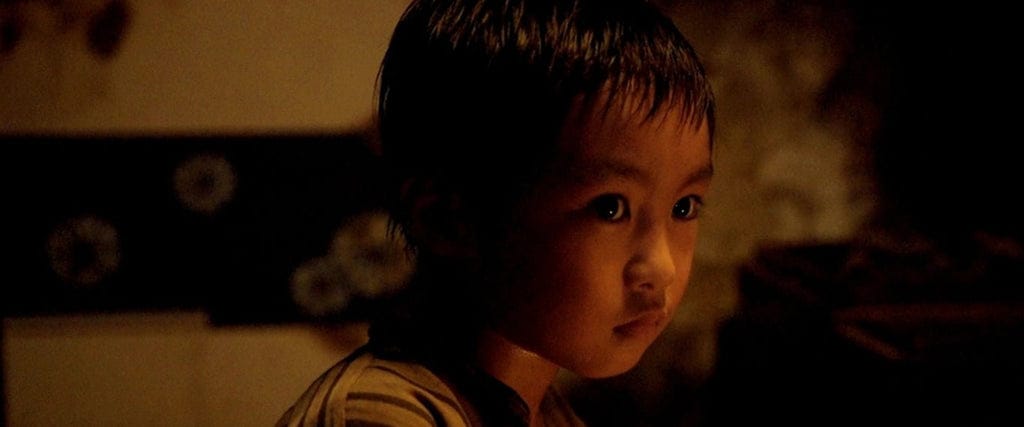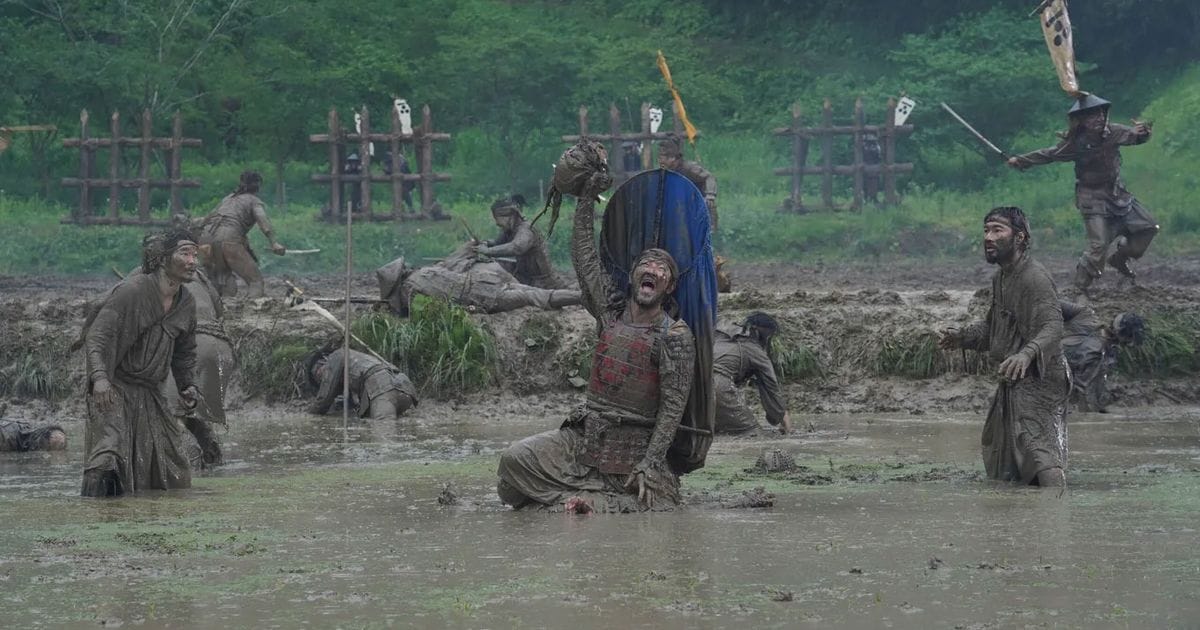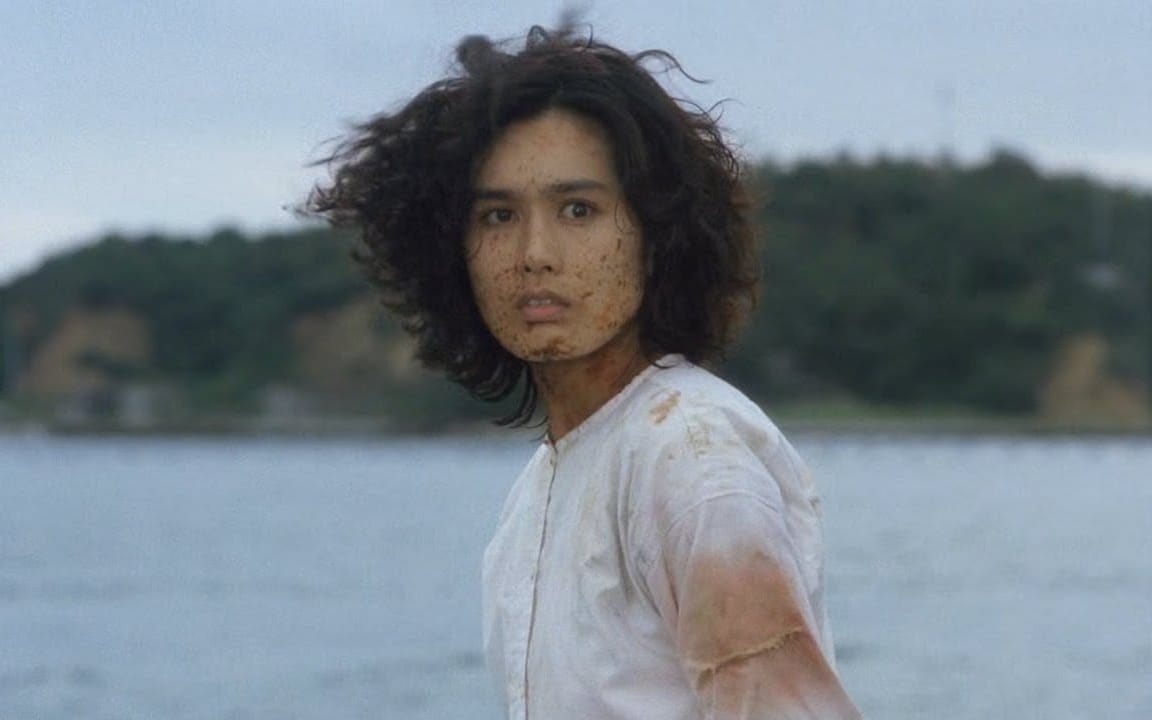Japan Cuts 2024 - Part Two

The 2024 Japan Cuts may have already concluded, but I’m still catching up with some of the films that played there. I hope to have another of these dispatches by the end of the week, to cover Somai Shinji’s Moving and Ishii Gakuryū’s August in the Water. But for now, here are three more reviews. My first dispatch covered films that were all more or less about music, this one covers three different approaches to movie violence. What is the cinema, after all, if not music and violence?

Shadow of Fire (Tsukamoto Shin’ya, 2023)
While all three of the films in this report are by unconventional directors, Tsukamoto’s film is the one that most easily fits into the expected norms of festival filmmaking. It’s a drama about the horrors of life in post-war Japan, seen largely through the eyes of a small child. Something like Grave of the Fireflies meets Germany Year Zero I suppose. An unnamed woman lives alone in a house, one of apparently few left standing in the wake of the fire-bombing of a city. She appears to spend her days and nights sleeping, partaking in the occasional sex work to survive. An ex-soldier tries to be one of her clients, but falls asleep instead. He hangs around for several days, along with a young boy who steals vegetables and trades them to the man and the woman for a place to spend the night.
This kind of recreation of the family in the wake of national tragedy is familiar from last year’s Godzilla Minus One. But absent the existential threat of a giant lizard, thing quickly turn sour. The soldier is wracked with PTSD and eventually cracks, striking out violently against both the boy and the woman. The boy chases him away with a handgun he’s found. This gun provides the pivot to the second section of the film, where the kid is hired by a man he meets on the street for some unknown purpose. The two travel around the destroyed city and its environs, some kind of a relief after the claustrophobia of the initial section of the film, almost wholly locked within the two rooms of the woman’s house. This second man (played by Moriyama Mirai, who starred in last year’s Shin Kamen Rider alongside Ikematsu Sosuke, star of both Between the White Key and the Black Key and Baby Assassins: Nice Day) is also a former soldier, and he’s on a mission to punish the superior officer who ordered him and his comrades to commit a variety of war crimes.
In Godzilla Minus One, the traumatized soldiers struggling to survive the post-war world are given a mission (defeat the giant monster) and in so doing are somewhat able to redeem themselves, and by extension their nation, from the experience of war. The main character is a soldier who, notably, did not (as far as we know) commit any atrocities whatsoever, rather his guilt revolves around his failure to be a kamikaze pilot and his inability to take military action against Godzilla when he first appears. Thus director Yamazaki Takashi shies away from the true horrors of war, the way it destroys minds not just by exposing people to violence, but in how it forces people to become violent themselves. Late in the film, the boy finds the soldier again, living in a hole in the city, surrounded by other homeless veterans, to a man irretrievably shattered not just by what they have seen, but by what they have done. Maybe Tsukamoto lets these men off the hook a little bit (“they were just following orders” is one way to read the middle section of the film). But it doesn’t feel like there’s any redemption in their future, with or without a Godzilla.

Kubi (Kitano Takeshi, 2023)
The great Kitano Takeshi’s long-gestating film Kubi is an entirely different kind of war movie. Initially conceived back in the early 90s (when no less than Kurosawa Akira said that if he managed to make a movie of it, then it would be a Seven Samurai-level masterpiece), and appearing first as a novel written by Kitano himself, Kubi is set during the civil wars that marked the Sengoku Period, the times before the Tokugawa Shogunate concentrated power in Japan. This has always been a popular time period for Japanese film (and video games if, like me, you’ve played countless hours of Nobunaga’s Ambition), and recent months have seen a hit TV series set in a version of the same time period, with the new adaptation of James Clavell’s Shogun. Kubi concerns the assassination of Oda Nobunaga, the warlord who came close to uniting Japan under his control but who instead failed spectacularly.
Kitano plays Hideyoshi Hashiba, a commoner who has raised himself to the level of warlord and who will ultimately prove triumphant (though his victory will be short-lived). The central plot involves the fallout of a failed revolt against Nobunaga by Araki Murashige. Murashige ends up hiding out with one of Nobunaga’s top retainers, Akechi Mitsuhide (played by Nishijima Hidetoshi, from Drive My Car and Shin Ultraman). Kitano’s assertion is that these three men, Mitsuhide, Murashige, and Nobunaga are all in love with each other, a love triangle that is indicative of the cruelty and decadence of the era, one which, we can assume, the more conservative and strict Tokugawa will bring to an end. This may rightfully be interpreted as a homophobic position, where sex between men is equated to decadence and decline, but I read it more as an exposure of the hypocrisy of the ruling and repressive class, kind of like the stories of how Grindr crashes at every Republican National Convention.
Ryo Kase (star of Hong Sangoo’s Hill of Freedom) plays Nobunaga like a maniac, all wild mood swings and raging tirades, with an uncontrollable appetite for sex and violence (either separately or together). It’s an outrageously grand performance, something like Mifune Toshiro at his most unhinged (Rashomon or Seven Samurai, for example). It stands in contrast to Kitano’s own sly performance as the wise-assed Hideyoshi, a vulgar joker whose intelligence and duplicity everyone underestimates because of his class background. The class difference between Hideyoshi and Nobunaga is emphasized in their choice of allies. Where Nobunaga’s are a bunch of passive yes-men, willingly subjecting themselves to his sexual and physical assaults for the sake of proximity to power, Hideyoshi enlists the help of a gang of commoners, led by a supremely capable ex-ninja who now works as a traveling storyteller. He in turn is joined by an even lower class peasant, a man whose dreams of power have led him to abandon his wife and child and murder his best friend in a deluded attempt to raise his status to samurai level.
This peasant subplot is a twisted variation on the initial premise of Mizoguchi Kenji’s Ugetsu, and allusions like this abound in Kubi, which might be read as Kitano’s blackly comic history of chanbara and jidaigeki films in general. Kurosawa nods come not just in the form of Ryo’s performance, but a very funny running gag riffing on the warlord-double premise of Kagemusha (with a nod to that film’s final battle as well, which occurred during this period) and the color-coded battle sequences of Ran. The stately pretensions of the samurai film, noble poet warriors following the complex demands of the bushido code of honor and loyalty, are lampooned by the simple cruelty of Nobunaga and the matter-of-fact cynicism of Hideyoshi. And not affectionately either. This is no comic Sanjuro, but rather a film as righteously angry as either version of Harakiri (Kobayashi’s or Miike’s). Kubi is wall-to-wall decapitating violence, but the most harrowing thing about it is how casual it all is, the way that, in times of civil war, in times of imperial decline, in times of chaos, humanity can be so casually tossed aside in the struggle for power and control.

Mermaid Legend (Ikeda Toshiharu, 1984)
Mermaid Legend is no less cruel or violent than Kubi, but it tackles the issue from the other end of the generic spectrum. Whereas Kubi is a response to decades of high class period films, Ikeda Toshiharu’s movie, made in 1984 for the art house collective The Director's Company, has more in common with the pink films and exploitation cinema of the 1970s and early 80s. And like the best of those films, it combines its sex and violence with a keen eye for social problems to make a provocative political statement.
It’s set in a small fishing community where Migiwa (Shirato Mari in a dangerously free performance), an abalone diver, works in tandem with her husband Saeki. The two bicker and argue, but the affection between them is real and they seem to work pretty well together. But one day, Saeki witnesses a murder out on the ocean, and is shortly thereafter killed himself, with the murder being pinned by its perpetrators on the innocent and heart-broken Migiwa. With the help of their friend Shouhei, she escapes to a local island, where she finds refuge in a brothel. But Shouei just so happens to be the son of the rich guy responsible for all the murders, part of a plot to steal the fishermen’s land so as to build a nuclear power plant. He eventually turns on Migiwa, and she sets out on a quest for bloody revenge.
The first section of the film plays like a naturalistic drama, with a real sense of community and fellow-feeling built around our heroes. That’s ruptured with the first murder, but the film doesn’t really become something else entirely until around the halfway mark, with an unusually long sex scene between Shouhei and Migiwa. That kind of thing could be expected in an early 80s art film, but it all goes on much longer and more explicitly than it seemingly should for artistic or plot-related purposes. It’s our first clue that we’ve left the world of realist drama for the scuzzy and morally blurry world of exploitation cinema. The second comes when Migiwa, disguising herself as one of the brothel exports, confronts the man who pulled the trigger on her husband. It’s another inordinately long scene, but this time the sex is violent and assaultive, and ends in multiple stabbings causing unnaturally effusive sprays of red.
The violence only escalates from here, culminating in a tour-de-force attack on the wealthy businessmen who so carelessly murdered Migiwa’s husband, and who would just as callously destroy her community. Armed with only a homemade harpoon and the righteousness of vengeance, she slices and stabs her way through a crowd of henchmen and hangers-on, socialites and executives, cops and capitalists. It’s remarkable and exhausting, Shirato’s grunts and screams driving home every puncture, scratch, and slash. Finally she’ll return to the sea, to the underwater world Ikeda’s camera has so lovingly captured from the very beginning of the movie. The world down there is blue and green.
